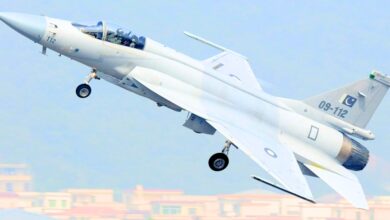
The ML-I project has been sent to ECNEC for approval
On Wednesday, the government approved a $6.7 billion project called Mainline-I (ML-I) railway, part of the China-Pakistan Economic Corridor (CPEC). Earlier, the government thought the project wasn’t practical, but now they’ve given it a first-level approval. However, the Ministry of Finance mentioned that this project might not align well with the goals of the next loan program from the International Monetary Fund (IMF).
The Central Development Working Party (CDWP), responsible for approving large development projects, has passed the ML-I project to the Executive Committee of the National Economic Council (Ecnec) for approval.
During the CDWP meeting, there were concerns raised about the project’s ability to generate enough revenue to repay the $5.8 billion loan from China, as well as doubts about the project’s business plan and whether it would be profitable. These concerns will also be discussed at the Ecnec meeting.
Sources say that both the Ministry of Finance and the Ministry of Economic Affairs cautioned the CDWP that the $6.7 billion project, especially the $5.8 billion loan and its repayment, might not be compatible with the conditions of the IMF program.
For the past two weeks, an IMF team has been in town assessing the political situation and the feasibility of the upcoming budget before deciding on a new financial support package. The IMF keeps an eye on CPEC projects by setting certain conditions, like limiting annual guarantees, monitoring subsidies, and aiming for an overall budget surplus.
A representative from the finance ministry suggested that the CDWP should reconsider whether to proceed with the project, even though China and Pakistan see it as strategically important. They pointed out that the conditions of the new IMF program would be very strict, leaving little room for taking a large foreign loan for the project.
The representative from the Ministry of Finance did not respond to questions from The Express Tribune.
For the second time in two weeks, the CDWP looked over the ML-I project. Last time, they postponed the decision because the project’s cost, design, and scope had changed, making it seem impractical. They needed to figure out whether to go ahead with it or not.
It was decided in the previous CDWP meeting that since the project is important, they would discuss it again with the secretaries of the Finance Division and Economic Affairs Division, along with other relevant departments.
When the Planning Commission said the project wasn’t feasible, the CDWP asked the Ministry of Railways to explain how reducing its scope would affect the business plan and assumptions. They also wanted the Finance Division and EAD to finalize the proposed terms and conditions.
The finance ministry pointed out that things have changed since 2016 when Pakistan and China agreed on the project loan.
There were also doubts about whether Rs250 billion could be set aside in the budget every year to complete the $6.7 billion project over the next eight years, totaling Rs1.93 trillion.
Due to Pakistan’s weak financial situation, Beijing suggested reducing the project cost by one-third to $6.7 billion. But this reduction made the project seem unfeasible, according to officials from the Planning Commission.
They said the project became unfeasible and compromised because the speed limit was lowered from 160 km per hour to 120 km per hour, the line capacity was reduced, rolling stock was excluded, axle load was compromised, and the fencing plan was scrapped.
However, the Ministry of Railways defended the project, saying that if it’s not completed, Pakistan Railways will face closure soon. They mentioned in the meeting that reducing the project’s scope and design would only slightly affect revenues.
Originally, the ML-I track was 1,872km long, but the Ministry of Railways now suggests rehabilitating a 1,726km-long track.
The finance ministry suggested the CDWP explore other ways to finance the project, like public-private partnerships. But this idea was rejected because the project is seen as strategically important and will be completed through bilateral efforts.
Sources say the economic affairs ministry supported the finance ministry’s view, saying there would be difficulties in repaying debts and convincing the IMF.






